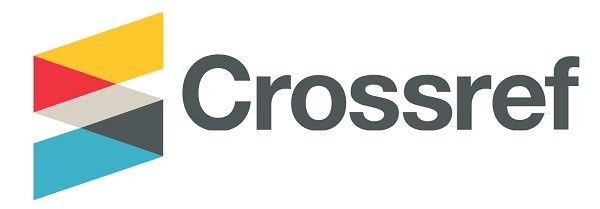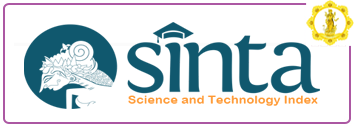Journey And Pitstops Of Online Teaching And Learning: Enhancing The Learning Continuity Plan For The New Normal In Education
DOI:
https://doi.org/10.25078/jpm.v7i1.2102Keywords:
Learning Continuity Plan, Online Education, Challenges In Online LearningAbstract
Education is a physical and interactive human activity. Primarily, teachers and students meet and take part in various learning activities in school. Other educational activities are held outside the school to augment what is learned inside the school campus. When technology developed and made online education possible, it was not fully embraced because education is also a social activity. However, the Covid-19 pandemic forced everyone to do things online including education. Unprepared and untrained for this new learning modality, educators had to prepare for a short period of time. Teachers underwent training through online webinars and conferences, and learning continuity plan was developed. Online classes for academic year 2020-2021 started six months ago which revealed the strengths, weaknesses, challenges, and issues in online teaching and learning. This study aims to find out the challenges encountered by the school leaders, teachers, and academic in the implementation of the learning continuity plan for online education including the resolutions made to address the challenges. Based on the study, it was found out that formulation and implementation of new policies, technological resources and capability of teachers and students, mental health and concerns of teachers and students, communication with parents and students, and school requirements. Different resolutions were made that addressed the concerns. It also revealed that the learning continuity plan is responsive to online teaching and learning but there are components that need to be enhanced.
Downloads
References
Ancho, I. (2020). Graduate Education during COVID-19 Pandemic: Inputs to Policy Formulation in the New Normal. Recoletos Multidisciplinary Research Journal, 8(2), 87-105. https://doi.org/10.32871/rmrj2008.02.07
Arrieta, G. S., Dancel, J. C., & Agbisit, M. J. P. (2020). Jurnal Pendidikan MIPA. Jurnal Pendidikan, 21(1), 95-108.
http://dx.doi.org/10.23960/jpmipa/v21i2.pp146-162
Borup, J., Jensen, M., Archambault, L., Short, C.R. & Graham, C.R. (2020). Supporting Students During COVID-19: Developing and Leveraging Academic Communities of Engagement in a Time of Crisis. Journal of Technology and Teacher Education, 28(2), 161-169. Waynesville, NC USA: Society for Information Technology & Teacher Education.
Creswell, J. W. (2014). A concise introduction to mixed methods research. SAGE publications.
Department of Education Order No. 007 s. 2020 (Philippines). School Calendar and Activities for School Year 2020-2021. May 11,2020.
Department of Education Order No. 12 s. 2020 (Philippines). Adoption of the Basic Education Learning Continuity Plan For School Year 2020-2021 in Light of the COVID-19 Public Health Emergency. June 19,2020.
Dhawan, S. (2020). Online learning: A panacea in the time of COVID-19 crisis. Journal of Educational Technology Systems, 49(1), 5-22.
Halupa, C. P. (2016, November). Risks: the impact of online learning and technology on student physical, mental, emotional, and social health. In International Technology, Education and Development Conference.
Harding, S., Morris, R., Gunnell, D., Ford, T., Hollingworth, W., Tilling, K., ... & Kidger, J. (2019). Is teachers’ mental health and wellbeing associated with students’ mental health and wellbeing?. Journal of affective disorders, 242, 180-187.
https://doi.org/10.1016/j.jad.2018.08.080
Holzweiss, P. C., Walker, D. W., Chisum, R., & Sosebee, T. (2020). Crisis Planning for Online Students: Lessons Learned from a Major Disruption. Online Learning, 24(2), 22-37.
Hutchison, K., Paatsch, L., & Cloonan, A. (2020). Reshaping home–school connections in the digital age: Challenges for teachers and parents. E-Learning and Digital Media, 17(2), 167-182.
Lever, N., Mathis, E., & Mayworm, A. (2017). School mental health is not just for students: Why teacher and school staff wellness matters. Report on emotional & behavioral disorders in youth, 17(1), 6.
Lee, S.J., *Ward, K.P., *Chang, O.D., & *Downing, K.D. (2021). Parenting activities and the transition to home-based education during the COVID-19 pandemic. Children and Youth Services Review, 105885, 1-10. https://doi.org/10.1016/j.childyouth.2020.105585
Muthuprasad, T., Aiswarya, S., Aditya, K. S., & Jha, G. K. (2021). Students’ perception and preference for online education in India during COVID-19 pandemic. Social Sciences & Humanities Open, 3(1), 100101.
O'Keefe, L., Rafferty, J., Gunder, A., & Vignare, K. (2020). Delivering High-Quality Instruction Online in Response to COVID-19: Faculty Playbook. Online Learning Consortium.
Sahu, P. (2020). Closure of universities due to coronavirus disease 2019 (COVID-19): impact on education and mental health of students and academic staff. Cureus, 12(4).
Schwartz, H. L., Ahmed, F., Leschitz, J. T., Uzicanin, A., & Uscher-Pines, L. (2020). Opportunities and challenges in using online learning to maintain continuity of instruction in K-12 schools in emergencies. RAND.
Shailendra Palvia, Prageet Aeron, Parul Gupta, Diptiranjan Mahapatra, Ratri Parida, Rebecca Rosner & Sumita Sindhi (2018). Online Education: Worldwide Status, Challenges, Trends, and Implications, Journal of Global Information Technology Management, 21:4, 233-241, DOI: 10.1080/1097198X.2018.1542262
Siu-Cheung Kong (2018). Parents’ perceptions of e-learning in school education: implications for the partnership between schools and parents, Technology, Pedagogy and Education, 27:1, 15-31. DOI: 10.1080/1475939X.2017.1317659
Talidong, Karen Joy B. & Toquero, Cathy Mae D. (2020). Philippine Teachers’ Practices to Deal with Anxiety amid COVID-19, Journal of Loss and Trauma, 25:6-7, 573-579.









